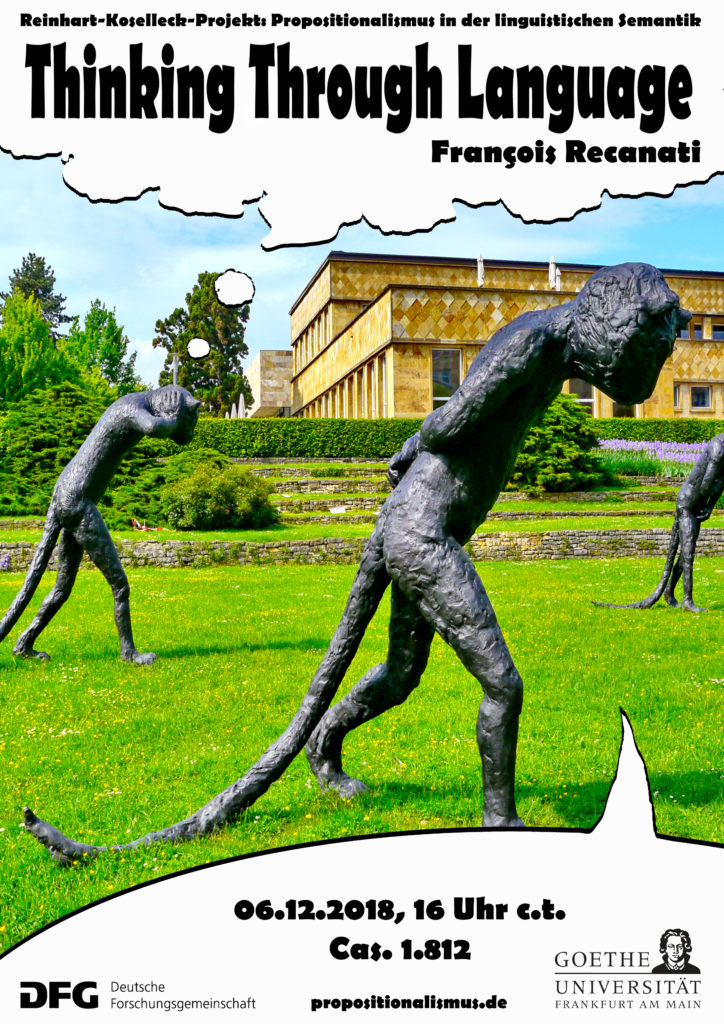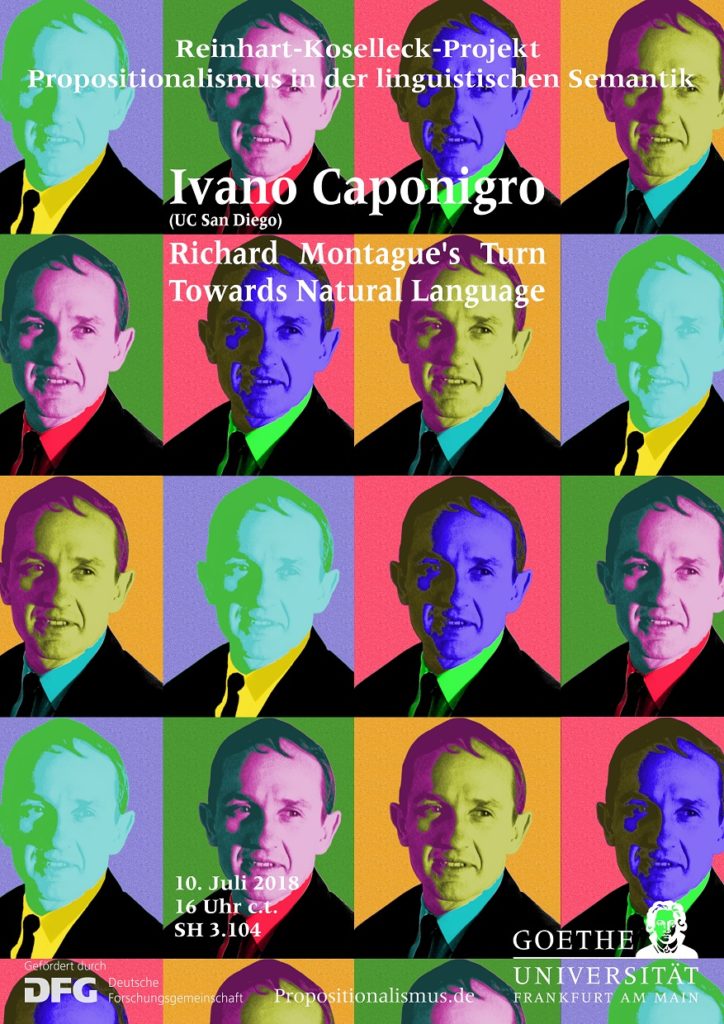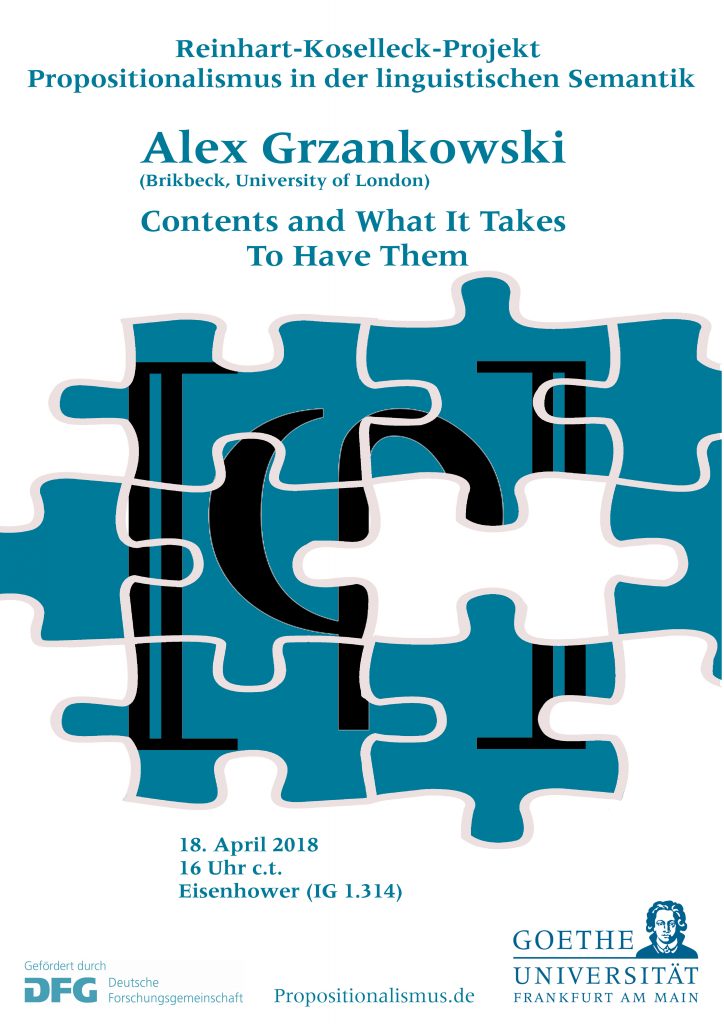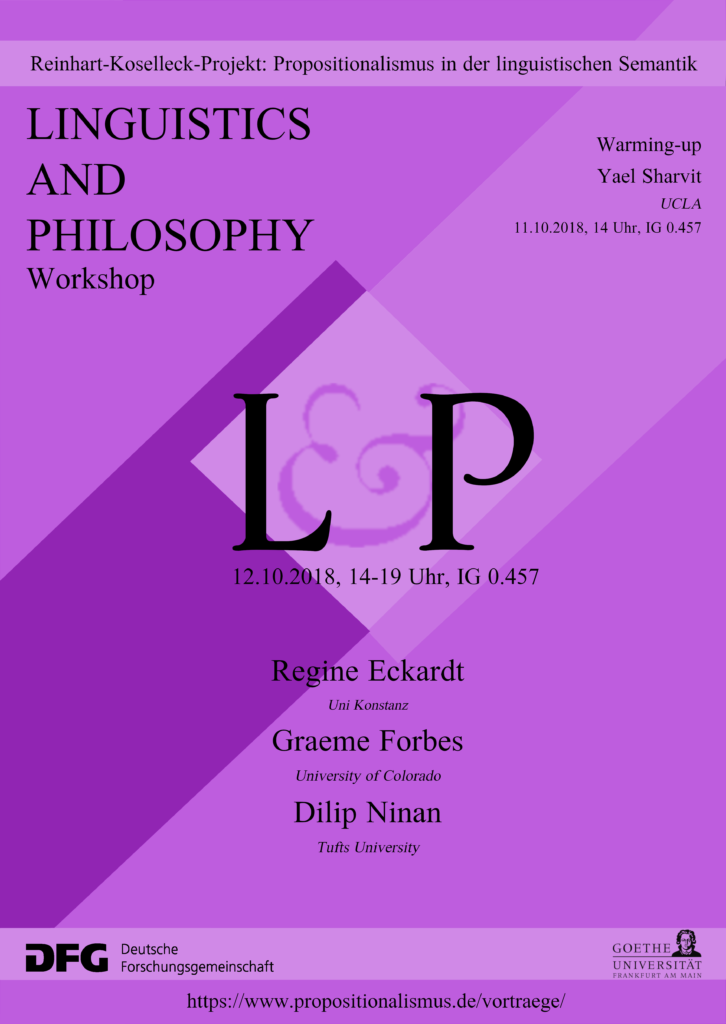December 6, 2018
François Recanati, College de France
Title: Thinking Through Language
Room: Cas 1.812
Date: December 6
Time: 4pm – 6pm
Thanks to the mechanism of deference, language ‘broadens the horizons of thought’, as David Kaplan puts it. This gives rise to verbal thought, a specific form of thought that is parasitic on language. How is this phenomenon to be understood? I will discuss the views of three philosophers : John Locke, David Kaplan, and Ruth Millikan.

October 12 with a Warming-Up October 11
2nd Frankfurt Workshop on Linguistics and Philosophy
with Regine Eckardt, Graeme Forbes, Dilip Ninan, and Yael Sharvit
Room: IG 0.457
Date: October 12
Time: 2pm – 7 pm
Programme:
2pm – 3.15pm: Graeme Forbes (University of Colorado)
Event Semantics in the Theory of Hyperintensionality
3pm – 3.45pm: Coffe Break
4pm – 5pm: Regine Eckardt (Uni Konstanz)
Evidentials and subjective defeasible inference
5.15pm – 5.45pm: Dilip Ninan (Tufts University)
Quantification and Epistemic Modality
Warming-Up, October 11
Yael Sharvit (UCLA)
Title: Temporal reference in non-specific indefinites
Room: IG 0.457
Date: October 11
Time: 2pm – 4pm
July 10, 2018
Ivano Caponigro
Title: Richard Montague’s Turn Towards Natural Language
Room: SH 3.104
Date: July 10
Time: 4pm – 6pm
In the early 60s, Richard Montague still believed that: “[The] systematic exploration of the English language, indeed of what might be called the ‘logic of ordinary English’, […] would be either extremely laborious or impossible. In any case, the authors of the present book would not find it rewarding.” Just a few years later, he radically changed his mind: “There is philosophic interest in attempting to analyze ordinary English” and “I reject the contention that an important theoretical difference exists between formal and natural languages.” At the very same time – not by chance – Montague changed his beliefs in what should be the adequate framework for philosophy: from “set theory with individuals and the possible addition of empirical predicates” to higher-order “intensional logic.” These changes coincide with the beginning of Montague’s seminal work on natural language semantics that culminated with the last three papers he published before his sudden and violent death. In this talk, I will examine these changes with the goal of gaining some understanding about what motivated them and what light these motivations may shed on Montague’s subsequent work on natural language. This investigation will be framed as part of a much broader ongoing project of an intellectual and personal biography of Montague.

18 April 2018
Alex Grzankowski
Title: Contents and What It Takes To Have Them
Room: IG 1.314
Date: April 18
Time: 4pm – 8pm
Abstract:
To understand what contents (propositional and otherwise) are, we need to consider what role they play in our theories (and my focus will be on their role in theories of mind). A crucial question that has not received adequate attention is, “What is it for something to *have* content?”. In the first part of the talk, I propose a provisional answer to this question that many theorists should find agreeable and which helps us resolve some pesky puzzles. But with an understanding of having content in mind, we are in a position to say what contents are. In the second part of the talk I will provide a very general approach to content that captures both propositions and contents of other kinds.
